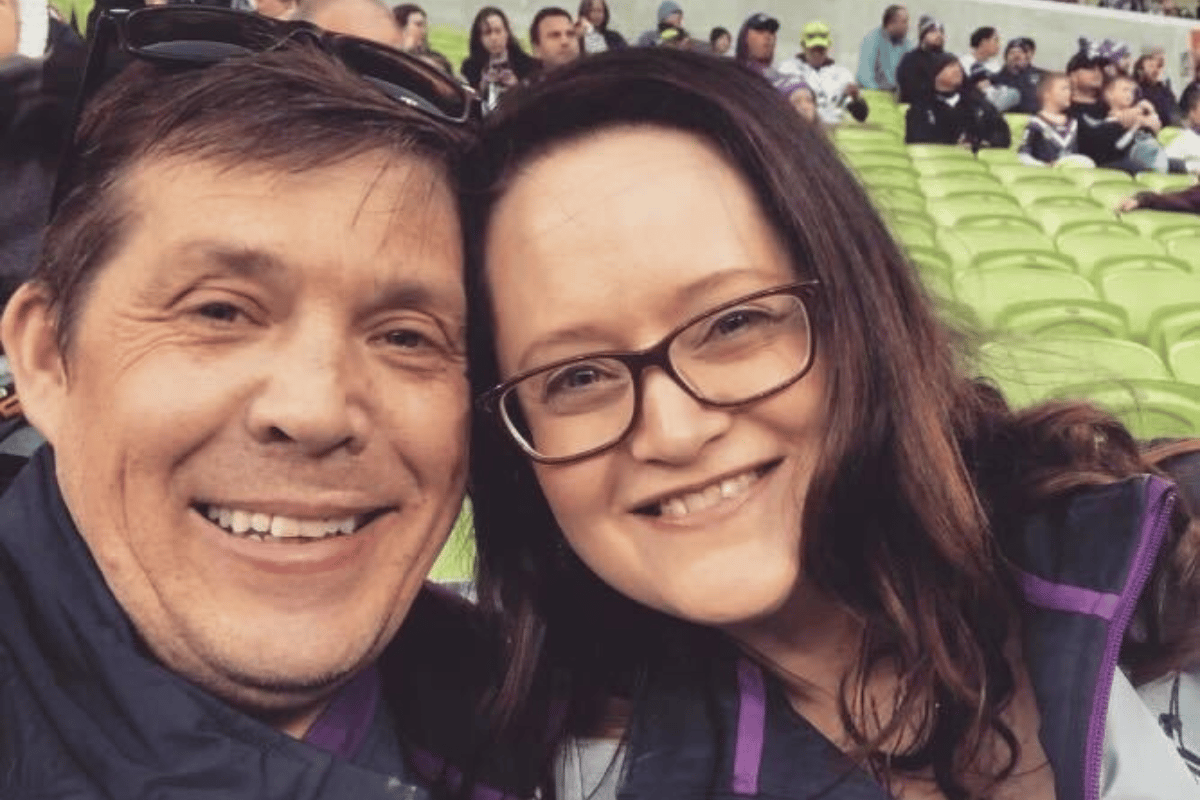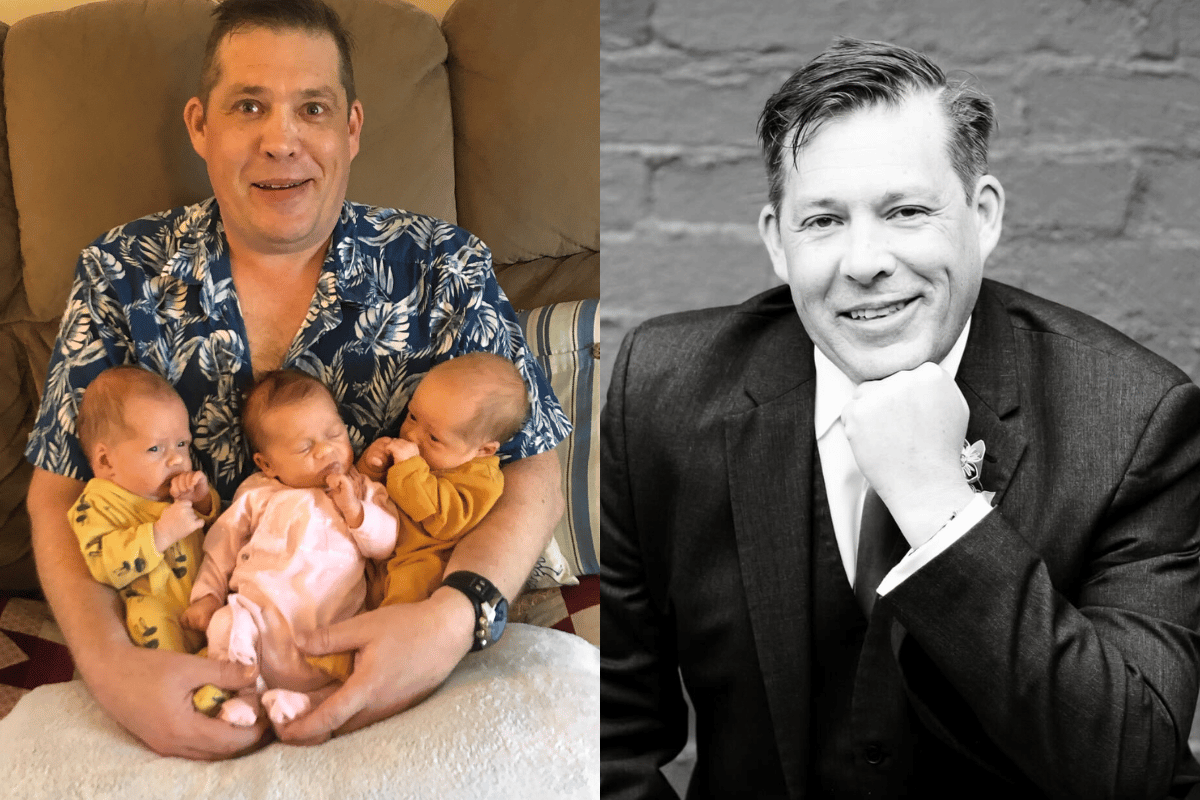
This story discusses serious addiction issues and could be triggering for some readers.
Whenever Linda would walk into her bedroom and see her then husband Brad asleep in bed, she feared he was dead.
This is the reality of living with someone who has a serious drug addiction associated with life or death consequences. Sadly for Linda, her ex-husband's life was eventually taken by addiction, leaving her and their three kids to pick up the pieces.
When Linda first met Brad back in 2016 on an online dating app, she immediately thought he was lovely.
"He had a great sense of humour, and we had a lot in common. Brad had so many passions as well, whether it was tech, true crime, movies or the Melbourne Storm team," she tells Mamamia.
But the type of person he then became in the cloud of addiction was completely different to the Brad who Linda had fallen in love with.
Watch: Jamie Lee Curtis reflections on a life nearly lost to addiction. Post continues below.
A year or so down the track in their relationship, they were married. And expecting triplets.
Throughout their time together, Linda knew Brad had a series of health issues, including stomach ulcers and a rare autoimmune disorder. But she soon realised that the amount of medication he was taking didn't match up with the diagnoses or the state of his health.


Top Comments